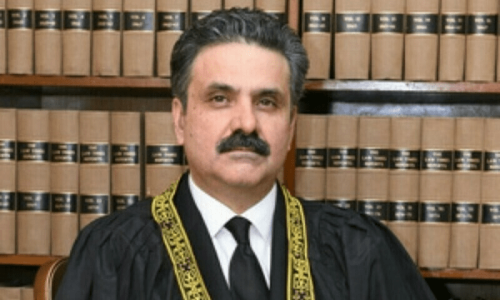KARACHI: Munshi Raziuddin Qawwal’s seventh death anniversary was celebrated at a local hotel on Saturday by his sons Farid Ayaz Al-Husseini-Abu Mohammad Qawwal, known names in the world of qawwali.
The atmosphere was charged as they sang one popular qawwali after another, creating magic for the true qawwali lovers. One is baffled by the effect this genre of music has on the listeners. Perhaps it is the Sufi touch that comes out and stirs the hearts of those present.
The word qawwali has its origins in the Arabic word qaul, which means dictum. Linked to the Chishty Sufi order, established by Khawaja Moinuddin Hasan Chishty, qawwali became popular in the subcontinent during the heyday of the revered 12th century Muslim mystic. Khawaja Sahib, as he is reverentially called, came to Rajasthan from an area which straddles modern Iran and Afghanistan and is buried in Ajmer, where even today devotees flock to his yearly urs, or death anniversary.
Nizamuddin Aulia, a 13th century mystic whose tomb is in Delhi, was a follower of the Chishty order and a great inspiration to Amir Khusrau, who, it is said played an important role in the development of qawwali and the mixture of the various musical elements of Persia and India.
Qawwali, in the latter part of the Mughal period, had similarities to the bhajan, or Hindu ritual music. During Aurangzeb’s reign, it went through a difficult period.
Munshi Raziuddin Qawwal belongs to the famous qawwali gharana, Qawwal Bacha Khandan, started by Samit Ibrahim, a student of Amir Khusrau. An outstanding qawwal of his time, Munshi Raziuddin received many awards, including the prestigious President’s Pride of Performance award. His sons Farid Ayaz and Abu Mohammad, who received vigorous training from their father from childhood, are accomplished musicians and well-versed in the classical ragas. They have performed in nearly all the continents of the world.
Farid Ayaz and Abu Mohammad began the programme with their opening qawwali Man Kunto Maula, which set the mood for the evening. This was followed by the famous Chap tilak sab cheen and Persian poetry of Amir Khusrau and Maulana Rumi, along with Lal Shahbaz Qalandar’s Namu danum kay chund damay to commemorate the Qalandar’s Urs, which recently concluded in Sehwan. By popular request Farid Ayaz sang Mera piya ghar aya at the end of the programme. Seeing the extremely positive response of the audience, Farid Ayaz said that they sang with extra fervour and enthusiasm at their father’s anniversary each year.











































Dear visitor, the comments section is undergoing an overhaul and will return soon.